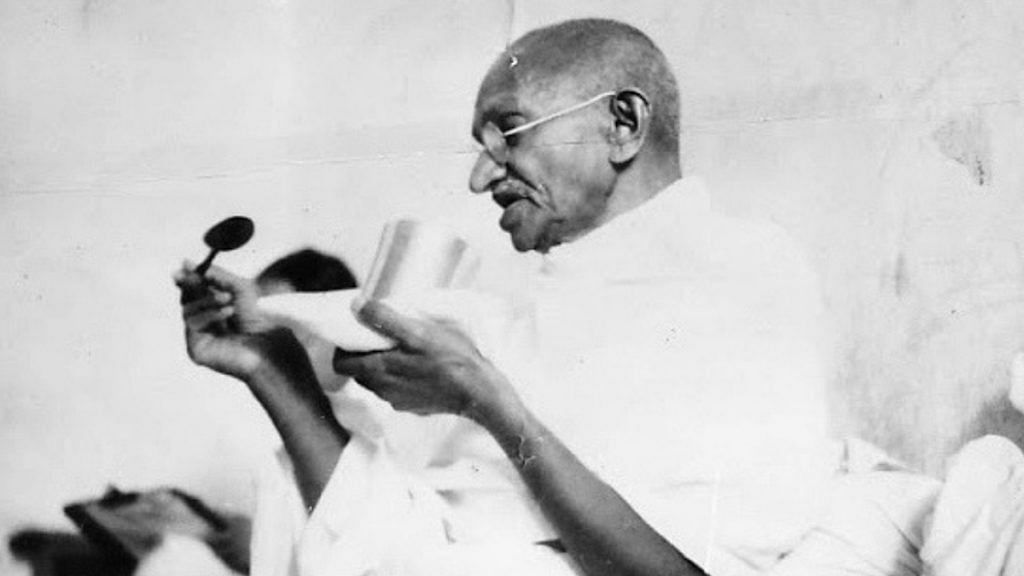Why did Gandhi virtually pay no attention to the empirically evident Muslim socio-religious plurality?
Gandhi continued to use Hindu-Muslims as legitimate political categories throughout his political career. Even during the Partition riots, he spoke of Muslims as a homogeneous entity. In his prayer meeting of 12 September 1947, Gandhi said:
Let us know our own dharma. In the light of our dharma I would tell the people that our greatest duty is to see that the Hindus do not act in frenzy, nor the Sikhs indulge in acts of madness. . . . I appeal to the Muslims that they should open-heartedly declare that they belong to India and are loyal to the Union. If they are true to God and wish to live in the Indian Union, they just cannot be enemies of the Hindus. And I want the Muslims here to tell the Muslims in Pakistan who have become the enemies of the Hindus, not to go mad: ‘If you are going to indulge in such madness, we cannot co-operate with you. We will remain faithful to the Union, and salute the tricolour. We have to follow the order of the Government’.
(CWMG, Vol. 89, 01 August 1947–10 November 1947, p. 176)
This statement clearly identifies Muslims as one group of people that could now be divided into two categories: the Muslims who stay back in India and the Muslims who have migrated to Pakistan.
Was Gandhi not a victim of the colonial knowledge systems that conceptualized Indian communities as homogeneous entities?
Let us begin with Hind Swaraj – the small pamphlet that Gandhi wrote in 1909 and the only complied version of his ideas that he did not wish to change or disown. There is an interesting conversation between the reader and the editor about the inborn enmity between Hindus and Muslims. Gandhi, the editor in this episode, argues with the reader that expression such as ‘inborn enmity’ emerged only after the advent of British Raj. Describing Muslims as an inseparable constituent of Indian nation, Gandhi says:
Should we not remember that many Hindus and Mahomedans own the same ancestors and the same blood runs through their veins? Do people become enemies because they change their religion? Is the God of the Mahomedan different from the God of the Hindu? Religions are different roads converging to the same point. What does it matter that we take different roads so long as we reach the same goal? Wherein is the cause for quarrelling?
(Hind Swaraj, 1938, p. 46)
Also read: Dadabhai Naoroji believed the Indian civil service was the reason for India’s poverty
He further says:
Those who do not wish to misunderstand things may read up the Koran, and they will find therein hundreds of passages acceptable to the Hindus; and the Bhagavadgita contains passages to which not a Mahomedan can take exception. (Hind Swaraj, 1938, p. 48)
This portrayal of Muslims as a peace-loving Indian religious community and the Quran as a message of peace and love goes well with our postcolonial minority-rights driven sensitivities. Any post-Indira Gandhi Congress style self-declared secular leader might find this passage valuable to score a point over Hindutva bhakts of our times.
However, this was not the case with Gandhi. He was absolutely sure that one must have to make a crucial distinction between the religious discourses and everyday forms of lived religion.
In Gandhi’s opinion, the common Hindus and Muslims follow a religion that is far away from the moral teachings of Hinduism and Islam. Therefore, expecting that the reforms in religion would function instrumentally and transform the followers of that religion is an artificial premise.
One may argue that there is slight contradiction in Gandhi’s views. In Hind Swaraj, he establishes a direct link between religious texts and followers of Islam. But, in 1924, he seems to be convinced that actual conducts in the name of religion are different from the moral teachings of religion.
Let us go back to the debate that began in 1924 and continued for the next three years in the pages of Young India and Navajivan. In a long article Gandhi argues that the character of Muslims as a religious community should not be confused with Islamic morality that he discovers in the Quran. Nevertheless, he finds Muslims to be ‘bullies’ because of two possible reasons.
First, there is a mystified story of Islam that establishes the fact that Islam cannot be envisaged without violence and the rule of sword. Gandhi finds this ‘distorted’ version of Islam highly problematic. Second, the history of imperialism associated with Islamic expansion, Gandhi argues, transformed Muslims into an aggressive community.
Thus, Gandhi clearly poses a serious challenge to the process of growing Islamization among Muslims. He reminds us that the moral principles given in the Quran and the history of Muslims are different from each other. He seems to call upon Muslims to think of a different possibility: discovery of Islam without relying on the given Muslim history of violence and conquest.
Gandhi reminds us that there is a possibility of thinking multiple forms of valid and legitimate Islamic homogeneities without compromising with the universally celebrated principles of Islam. This creative imagination of Muslims of India, I argue, makes Gandhi our contemporary
This excerpt from the essay Gandhi’s Imagination of Muslims, part of Gandhi in Contemporary Times, has been published with permission from Routledge.
Also read: Nehru told Raja Rao: Enough of Rama, Krishna — 3,000 yrs of deities got us slavery, poverty
